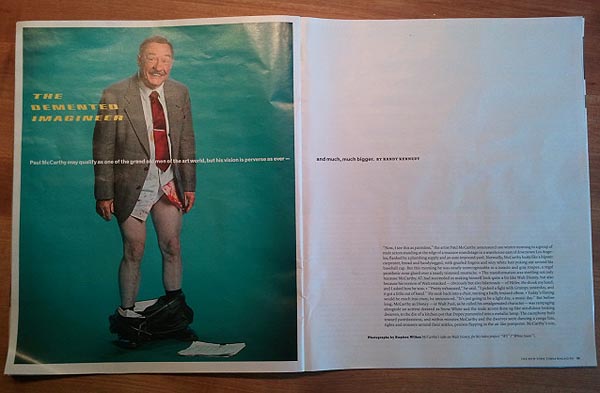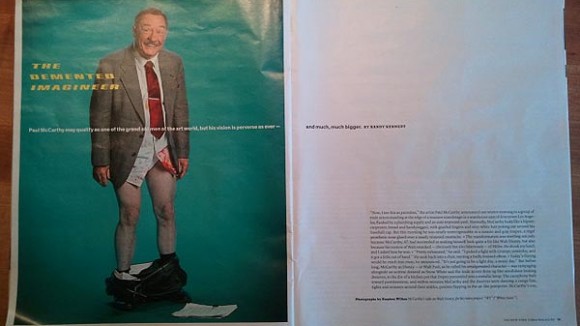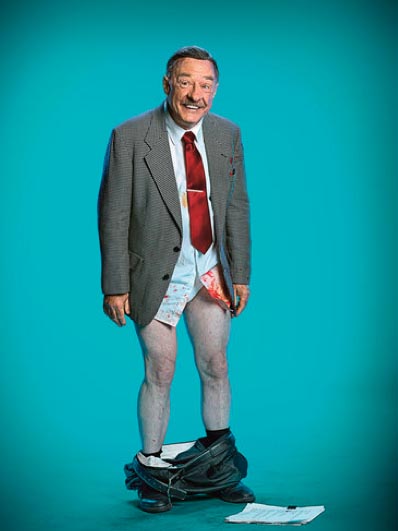

The NY Times Compares Walt Disney to Hitler for Apparently No Reason

In last weekend’s NY Times Sunday Magazine, the paper published a profile of artist Paul McCarthy in connection with his new show WS (which stands for “White Snow”). The epic performance piece, which opens June 19 at Manhattan’s Park Avenue Armory, will consist of “a massive, fantastical forest with towering trees, two off-scale houses, equipment and props from classic film-sets, and layers of film and sound.” During the piece, McCarthy—as Walt Disney—will participate in an orgy with Snow White and the seven dwarfs.
All that is well and good, but what alarmed me about the piece is why Times writer Randy Kennedy compared McCarthy’s portrayal of Disney to Hitler in the article’s second paragraph:
The transformation was startling not only because McCarthy, 67, had succeeded in making himself look quite a bit like Walt Disney, but also because his version of Walt smacked — obviously but also hilariously — of Hitler.
It’s hard to believe that the editors at the NY Times are naive about the implications of comparing any individual to Hitler, much less an important historical figure who is commonly—and falsely—portrayed as an anti-Semite in popular culture. It’s irresponsible at best, malicious at worst.
Kennedy says in his piece that McCarthy’s Walt “obviously” channels Hitler, but in the Times photo of McCarthy, the association is far from obvious. So how did Kennedy come up with such a far-fetched observation?
Perhaps the answer lies with one of the people interviewed for the piece: curator and former New York City Public Art Fund director Tom Eccles, who is helping organize McCarthy’s show. In an interview with another media outlet, Eccles also described McCarthy’s Walt to Hitler, calling the show a “gory, horrifying tale of Paul McCarthy as Disney, as Hitler, in love with Snow White.”
What I’d like to know is whether McCarthy himself endorses this comparison of Walt Disney to Hitler or is this something concocted by his handlers? McCarthy’s commentaries on contemporary media and pop mythology tend to be layered and thought-provoking, and I’d be surprised if he was personally promoting such simplistic, banal allusions. Whatever McCarthy’s views, it’s clear that a lot of people want to encourage this revisionist portrait of Walt Disney as monster, including, sadly, the NY Times.

.png)